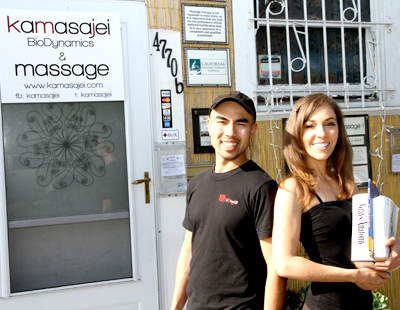
New business rate the highest in 15 years - Hispanics represent largest increase ---
During the Great Recession, more Americans have become entrepreneurs than at any time in the past 15 years. According to the "Kauffman Index of Entrepreneurial Activity," 0.34 percent of American adults created a business per month in 2010, or 565,000 new businesses, a rate that remained consistent with 2009 and represents the highest level of entrepreneurship over the past decade and a half.
New data also reveals important shifts in the demographics of entrepreneurial activity. Entrepreneurship rates by race show that Hispanics represented the largest entrepreneurial activity increase between 2009 and 2010. The Hispanic business-creation rate rose from 0.46 percent in 2009 to 0.56 percent in 2010, the highest rate over the 15 years of data. Both African-Americans and non-Hispanic whites, however, experienced declines in entrepreneurial activity rates.
“With the recession, it makes sense that people want to start their own business - people losing their job is one of the reasons why people start a new venture,” says Viola Gonzalez, CEO of AnewAmerica in Oakland.
A non-profit organization that provides business training to immigrants, AnewAmerica serves people from 26 different countries. “We are seeing more people wanting to start businesses who have less experience and are from other countries than Mexico,” says Gonzalez.
Success story
Kristina María T-Gutierrez is a local example of Hispanic entrepreneurship. She and her business partner are owners of a specialized massage therapy business called KaMasaJéi BioDynamics & Massage (pronounced “masaje” from español, with “Kah” at the beginning).
“I was brought up mostly in the Bay Area, and also Los Angeles, New York, and Guadalajara, Mexico, “says Gutierrez.
At their studio in Oakland, they provide deep tissue, sports massage, neuromuscular facilitation, myofascial release, reflexology and other therapies to individuals and teams of all types including athletes and corporate.
Gutierrez has a degree in molecular genetics/microbiology from the University of California as well as a degree in dance from Alvin Ailey in New York. Being an artist/athlete all her life, she was accustomed to receiving very high quality bodywork, therapy and massage. “I was worked on by a super-talented masajista (therapist) from Indonesia, Johnny Wong, with a background in mechanical engineering,” she says. “We both were passionate about the power and diverse applications of true bodywork and we saw a need to create our business,” says Gutierrez, who partnered with Wong to start the business in 2009.
“The whole culture of sitting in chairs all day long with insufficient regular natural movement and lack of sufficient stimulation of “feel good/healing” neurotransmitters like serotonin and dopamine results in so much injury, depression, discomfort, sickness, and obesity,” she affirms.
“We started without financial help, says Gutierrez. “We made a project with a goal of making $800 of income and it is how we started it.”
Gutierrez says they are very happy that in their first two years of business they have worked on the following groups: Olympic swimmers training at Cal State University, SF Giants Luxury Suites, Starbucks, American Airlines, the Oakland Marathon Top Finishers, and many other people in their studio in Oakland.
Avoiding failure
“Many people want to start a restaurant or retail business - restaurants are the toughest business and it has the lowest survival rate among businesses,” says Gonzalez of AnewAmerica.
“Before people start a business they should have a really good idea of the business they are planning to start,”she adds.
“When they start the program they are often surprised by what is needed to start and run a successful business,” says Jeff Butler, Director of the Women’s Business Center at AnewAmerica.
Butler says that a smart approach is to work in a business like the one you are interested in starting. Learn as much as you can and figure out a way to start small.
“Don’t start too big too quickly,” he says. “Even with a good idea, it pays to start small and have a good idea of how you are going to build it up.”

